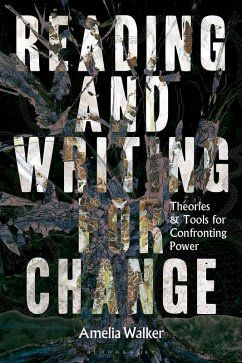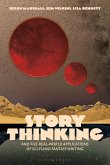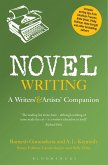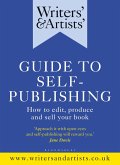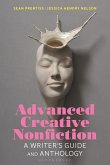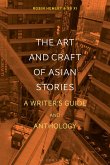Dr Amelia Walker (University of South Lecturer of Creative Writing
Reading and Writing for Change
Theories and Tools for Confronting Power
Dr Amelia Walker (University of South Lecturer of Creative Writing
Reading and Writing for Change
Theories and Tools for Confronting Power
- Broschiertes Buch
- Merkliste
- Auf die Merkliste
- Bewerten Bewerten
- Teilen
- Produkt teilen
- Produkterinnerung
- Produkterinnerung
An exploration of how creative writers and readers can recognize and resist processes of power in works of literature and their own writing to redress social injustices.
Andere Kunden interessierten sich auch für
![Writing and Health Care Writing and Health Care]() Dr Janelle Adsit (Assistant Professor, Humboldt State University, UWriting and Health Care35,99 €
Dr Janelle Adsit (Assistant Professor, Humboldt State University, UWriting and Health Care35,99 €![Story Thinking and the Real-World Applications of Sci-Fi and Fantasy Writing Story Thinking and the Real-World Applications of Sci-Fi and Fantasy Writing]() Professor Kim Wilkins (Professor, University of Queensland, AustralStory Thinking and the Real-World Applications of Sci-Fi and Fantasy Writing25,99 €
Professor Kim Wilkins (Professor, University of Queensland, AustralStory Thinking and the Real-World Applications of Sci-Fi and Fantasy Writing25,99 €![Novel Writing Novel Writing]() Romesh GunesekeraNovel Writing30,99 €
Romesh GunesekeraNovel Writing30,99 €![Writers' & Artists' Guide to Self-Publishing Writers' & Artists' Guide to Self-Publishing]() Writers' & Artists' Guide to Self-Publishing23,99 €
Writers' & Artists' Guide to Self-Publishing23,99 €![Advanced Creative Nonfiction Advanced Creative Nonfiction]() Dr Sean Prentiss (Norwich Universit Assistant Professor of EnglishAdvanced Creative Nonfiction34,99 €
Dr Sean Prentiss (Norwich Universit Assistant Professor of EnglishAdvanced Creative Nonfiction34,99 €![Digital Voices Digital Voices]() Dr Saul Lemerond (Assistant Professor of English, Hanover College,Digital Voices27,99 €
Dr Saul Lemerond (Assistant Professor of English, Hanover College,Digital Voices27,99 €![The Art and Craft of Asian Stories The Art and Craft of Asian Stories]() Professor Robin Hemley (Long Island University, Brooklyn, USA)The Art and Craft of Asian Stories41,99 €
Professor Robin Hemley (Long Island University, Brooklyn, USA)The Art and Craft of Asian Stories41,99 €-
-
-
An exploration of how creative writers and readers can recognize and resist processes of power in works of literature and their own writing to redress social injustices.
Produktdetails
- Produktdetails
- Verlag: Bloomsbury Publishing PLC
- Seitenzahl: 256
- Erscheinungstermin: 18. September 2025
- Englisch
- Abmessung: 233mm x 161mm x 15mm
- Gewicht: 394g
- ISBN-13: 9781350450400
- ISBN-10: 1350450405
- Artikelnr.: 72186241
- Herstellerkennzeichnung
- Libri GmbH
- Europaallee 1
- 36244 Bad Hersfeld
- gpsr@libri.de
- Verlag: Bloomsbury Publishing PLC
- Seitenzahl: 256
- Erscheinungstermin: 18. September 2025
- Englisch
- Abmessung: 233mm x 161mm x 15mm
- Gewicht: 394g
- ISBN-13: 9781350450400
- ISBN-10: 1350450405
- Artikelnr.: 72186241
- Herstellerkennzeichnung
- Libri GmbH
- Europaallee 1
- 36244 Bad Hersfeld
- gpsr@libri.de
Amelia Walker lectures in Creative Writing at the University of South Australia, on Kaurna Yerta, Australia. Her research engages poetry and related creative practices to raise subjugated knowledges and provide new insights into social, cultural, political, and ecological challenges of our times. Her fifth poetry collection is forthcoming in 2023.
Foreword by award-winning creative writer and academic Paul Collis
1. Introduction
2. On story, narratives, metaphor, and thinking: reigniting forgotten
connections
3. Disentangling power from privilege, capital, and hegemony
4. Story and ideology: how power operates with and in texts that reflect
and reinforce existing injustices
5. Towards agency through stories as re-presentation and poiesis as
re-creation
6. Whose stories matter? How literary canons regulate access to creative
writing as an Arendtian 'space of appearance'
7. Strategies of 'writing back' to destabilise canonical power
8. Not just who, but how: literary aesthetics and notions about merit as
sites of struggle
9. Story and the 'politics of aesthetics' on macro levels: form, structure,
and narrative order
10. Story and the 'politics of aesthetics' on micro levels: grammar, style,
and figurative devices
11. Risks of recuperation and the need for ongoing self-revaluation in and
through creative writing, story, and poiesis
12. To be continued: new directions in and for creative writing as a site
of struggle
Appendix one: glossary of terms used in specific ways within this book
List of Works Cited
1. Introduction
2. On story, narratives, metaphor, and thinking: reigniting forgotten
connections
3. Disentangling power from privilege, capital, and hegemony
4. Story and ideology: how power operates with and in texts that reflect
and reinforce existing injustices
5. Towards agency through stories as re-presentation and poiesis as
re-creation
6. Whose stories matter? How literary canons regulate access to creative
writing as an Arendtian 'space of appearance'
7. Strategies of 'writing back' to destabilise canonical power
8. Not just who, but how: literary aesthetics and notions about merit as
sites of struggle
9. Story and the 'politics of aesthetics' on macro levels: form, structure,
and narrative order
10. Story and the 'politics of aesthetics' on micro levels: grammar, style,
and figurative devices
11. Risks of recuperation and the need for ongoing self-revaluation in and
through creative writing, story, and poiesis
12. To be continued: new directions in and for creative writing as a site
of struggle
Appendix one: glossary of terms used in specific ways within this book
List of Works Cited
Foreword by award-winning creative writer and academic Paul Collis
1. Introduction
2. On story, narratives, metaphor, and thinking: reigniting forgotten
connections
3. Disentangling power from privilege, capital, and hegemony
4. Story and ideology: how power operates with and in texts that reflect
and reinforce existing injustices
5. Towards agency through stories as re-presentation and poiesis as
re-creation
6. Whose stories matter? How literary canons regulate access to creative
writing as an Arendtian 'space of appearance'
7. Strategies of 'writing back' to destabilise canonical power
8. Not just who, but how: literary aesthetics and notions about merit as
sites of struggle
9. Story and the 'politics of aesthetics' on macro levels: form, structure,
and narrative order
10. Story and the 'politics of aesthetics' on micro levels: grammar, style,
and figurative devices
11. Risks of recuperation and the need for ongoing self-revaluation in and
through creative writing, story, and poiesis
12. To be continued: new directions in and for creative writing as a site
of struggle
Appendix one: glossary of terms used in specific ways within this book
List of Works Cited
1. Introduction
2. On story, narratives, metaphor, and thinking: reigniting forgotten
connections
3. Disentangling power from privilege, capital, and hegemony
4. Story and ideology: how power operates with and in texts that reflect
and reinforce existing injustices
5. Towards agency through stories as re-presentation and poiesis as
re-creation
6. Whose stories matter? How literary canons regulate access to creative
writing as an Arendtian 'space of appearance'
7. Strategies of 'writing back' to destabilise canonical power
8. Not just who, but how: literary aesthetics and notions about merit as
sites of struggle
9. Story and the 'politics of aesthetics' on macro levels: form, structure,
and narrative order
10. Story and the 'politics of aesthetics' on micro levels: grammar, style,
and figurative devices
11. Risks of recuperation and the need for ongoing self-revaluation in and
through creative writing, story, and poiesis
12. To be continued: new directions in and for creative writing as a site
of struggle
Appendix one: glossary of terms used in specific ways within this book
List of Works Cited

